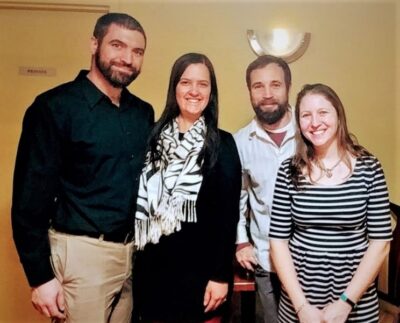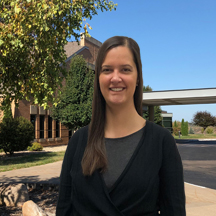
Belonging, in a Pandemic
My in-laws suggested we “borrow” their cat for the duration of the pandemic, so the kids would have a pet to play with. It seemed like a great idea the more we thought about it. The cat, Joey, is incredible with kids, allowing them to drag him around and hold him (from every angle). We bought all the supplies needed and planned to pick him up the next day, all without revealing the surprise to the kids. It was at this point that I shared the idea with my friend Jessica (who is in our small group). She quickly reminded me that she has a severe cat allergy, a detail I had placed in the recesses of my brain.
Over a 12 hour period, Karl and I had to make a decision about what to do. We already had all the supplies. Also, Joey’s visit was our Easter gift to the kids. Many thoughts ran through my mind. Would there really be pet dander in our house when we can see each other again, months from now? How bad is her allergy? Should I really toss my plans just for this?
After praying about it, I had a new perspective enter my mind. Am I prioritizing a thing (a pet) over a person? This thought stuck with me for several hours. Even though I was still angry about having to cancel our “Easter surprise,” I decided to prioritize our relationship over a pet (that wasn’t even ours).
 We prioritize our small group relationships in-part because it provides us with belonging and connection, even in a pandemic. It’s where we live out the sanctification process. Sometimes that process is ugly or involves anger and sometimes it is joyful. Over the last 5 years, we have gotten on each other’s nerves, sometimes to the point of not speaking to each other for a short time. But that’s the reality of being broken humans in a close relationship. The beauty is that we get to give and receive hospitality, authenticity, forgiveness, and restoration in the regular flow of life.
We prioritize our small group relationships in-part because it provides us with belonging and connection, even in a pandemic. It’s where we live out the sanctification process. Sometimes that process is ugly or involves anger and sometimes it is joyful. Over the last 5 years, we have gotten on each other’s nerves, sometimes to the point of not speaking to each other for a short time. But that’s the reality of being broken humans in a close relationship. The beauty is that we get to give and receive hospitality, authenticity, forgiveness, and restoration in the regular flow of life.
Since social distancing began, our small group continues to meet. We use Zoom and the Marco Polo app. We’ve recently begun having the guys and gals meet on separate nights, using Zoom. This way the “other” parent can put the kids to bed. Being able to see each other’s faces and nonverbal gestures is helpful for maintaining close relationships. Belonging and connection are possible, even in a pandemic.
 Lindsey Ungs
Lindsey Ungs
Connection & Communication Architect

